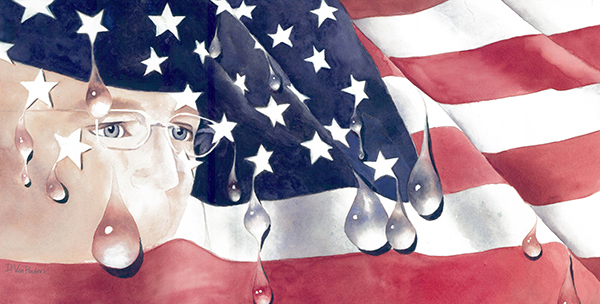From America to Saudi Arabia, textual sacralisation induces a unique fervour

Just how sacralised has the American constitution become?
Very.
It would not be inaccurate to say it has become a secular religion, inspiring the same sort of fervour as a revealed religious text such as the Quran.
In fact, exactly that sort of fervour, a righteous rage over the defence of something that’s considered too pure to be re-touched by human hand. This, despite the US constitution having been conceived and written by men and having been amended from time to time ever since.
In a recent thought-provoking piece on America’s impending constitutional meltdown Ed Luce, the Financial Times’ US editor, quoted a Georgetown Law School professor’s standard question to her students at the start of each academic year.
Rosa Brooks asks the freshmen what they think of the US constitution. After hearing them express pride at the 233-year-old American constitution, Ms Brooks asks: “Presumably you think it would also be great if our surgeons worked off the oldest neurological manuals, or if our ships steered by the oldest navigational charts?”
That question, Mr Luce notes, is an attempt to probe the oldness of a document as opposed to its usefulness. In fact, Thomas Jefferson recommended the US change its constitution every generation.
The FT piece quotes Ms Brooks again as follows: “…imagine you are sitting in a room and you’re trying to figure out how to solve some 21st-century challenge we face. Then someone bursts in and says, ‘Hey, I’ve got the answer. I’ve found this document written in the late-18th century when America only had four million people, most of whom were farmers.’ Do you really think they would have a clue?”
Well, of course not. But who would be willing to believe that everything one needs is not provided within the US constitution? Or indeed, as some of the more devout say, within the Quran?
Consider this anecdote in H. St. John Philby’s 1928 book ‘Arabia of the Wahhabis’. Philby, incidentally, was a British Arabist who converted to Islam and was very close to the founder of Saudi Arabia, King Ibn Saud, advising him on how to push the Saud family’s claims to ruling the bulk of the Arabian peninsula. More recently, the Philby surname is probably better known because of St. John’s son, Kim, infamous as a Soviet double agent.
Anyway, in his book, Philby says that Ibn Saud often asked him about disparate countries.
Once, in the presence of Ahmad Ibn Thunaian, a cousin and private secretary to Ibn Saud, the king asked what is the language of the Americans?
English, says Philby, leading Ibn Saud to say, “are they of English stock? I thought they were of Indian origin.”
Philby explains about Red Indians, the West Indies etc and then asks Ibn Saud if America was mentioned in the Quran.
“Yes”, answers Ahmad, the private secretary, without hesitation.
But, says Philby, the New World had not been discovered in the time of Muhammad.
Philby writes that Ibn Saud responded, “But God knows everything and the Quran is his word.”
Philby says that he covered his “confusion by suggesting that God would not necessarily display the whole of his knowledge to ignorant mortals”.
It was a diplomatic way to end a discussion about the perceived sacred completeness of a text believed to have come down from God.
It is shocking that the American constitution too is considered to have a similar quasi-religious omniscience (and immutability).
Tomorrow:

